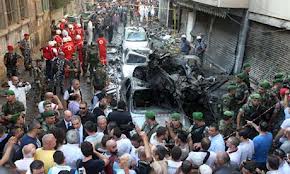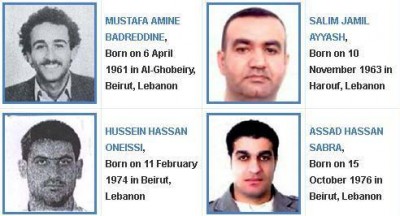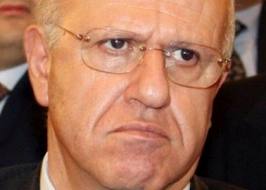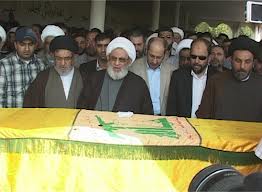 Senior Lebanese security official Maj. Gen. Wissam al-Hassan was among those killed in this morning’s car bombing in Beirut, The Washington Post’s Liz Sly has confirmed. Hassan was an important figure in the country’s security establishment, and his death could have significant implications in Lebanon and beyond.
Senior Lebanese security official Maj. Gen. Wissam al-Hassan was among those killed in this morning’s car bombing in Beirut, The Washington Post’s Liz Sly has confirmed. Hassan was an important figure in the country’s security establishment, and his death could have significant implications in Lebanon and beyond.
“This is a big, big, big event, and one cannot begin even to think through the repercussions,” a Lebanese political adviser told Sly. But begin we must, so here are the essential details on Hassan, his role in the region, and what his killing could mean if suspicion of Syrian involvement proves to be true.
• Enemy of Hezbollah: Hassan was “renowned,” Sly writes, for leading an investigation into Hezbollah’s alleged role in the 2005 assassination of Lebanese Prime Minister Rafiq al-Hariri. Former Israeli intelligence officer Michael Ross tweeted, “Hezbollah has wanted Wissam al-Hassan for a long time. #Syria just gave them the excuse.”

• Enemy of Syria: Hassan helped lead the politically disruptive arrest of Michel Samaha, a former Lebanese politician believed to have ties to the Syrian government, on charges of planning to detonate Syrian explosives in Lebanon. Al-Jazeera’s Rula Amincalled Hassan “a key figure in supporting the armed opposition in Syria.”

• Hezbollah serving Syria at Lebanon’s peril: A report by U.N. Secretary General Ban Ki-moon, released just yesterday, cited “credible” reports that Hezbollah, which is also a political party with seats in the Lebanese government, was fighting in Syria on behalf of President Bashar al-Assad. Ban warned that Hezbollah’s alleged militant activities in Syria “contradict and undermine the dissociation policy of the government of Lebanon, of which Hezbollah is a coalition member.” He added: “I am increasingly concerned that the increasing number of reports of activities in Syria by Hezbollah, a member of the governing coalition, could jeopardize this policy and ultimately Lebanon’s stability.”

• Sectarian tensions within Lebanese security services: Elias Muhanna, a Brown University professor and blogger on Lebanese politics, wrote after Samaha’s August arrest: “There seems to be a hidden war taking place between Lebanon’s military-intelligence branches. So far, there have been few public casualties of that war, but if the stakes keep rising as they did today, that may change rapidly.” He called it “a sectarian rumble looming in Lebanon’s security services.”
• Syrian war spreads: If speculation turns out to be accurate that the Syrian government was behind the blast, and that it killed Hassan intentionally, it would mark an escalation and a small degree of internationalization of the Syrian conflict. This would be a not-shocking but still geopolitically significant increase in the war’s impact on the broader region. This in turn risks increasing neighboring countries’ exposure to the conflict and thus their interest in controlling it. “I wonder how [Saudi Arabia] will react,” Brookings Doha director Salman Shaikh asked on Twitter. “I suspect regional proxy war just got a little hotter.” The stakes would seem to be rising.
Washington Post

Leave a Reply
You must be logged in to post a comment.